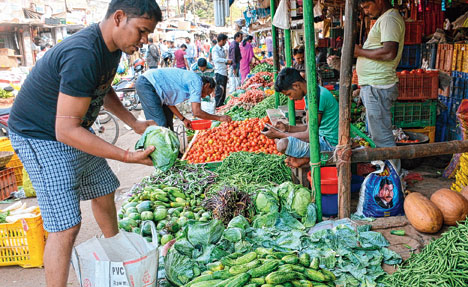
Bhubaneswar: The housing and urban development department has directed the municipal corporation to explore an option to put up decentralised compost plants at vegetable markets across the city.
Accordingly, the Bhubaneswar Municipal Corporation has decided to identify major vegetable markets and set up the plants. The project will be undertaken in collaboration with respective market associations.
The civic body will also make efforts to sensitise vendors on source segregation of the waste that will help them make the compost easily.
In the process, the civic body will make it mandatory for the vendors to keep two coloured bins. The blue colour bin will be for dumping non-biodegradable and green for biodegradable wastes.
The civic body will then collect the waste for proper disposal.
"We have come up with a concept of conducting cleanliness activities in a decentralised manner. In a first, we have decided to target the city's vegetable markets since waste generated from these places are mostly biodegradable and are easy to handle compared to other hazardous waste," said an official of the housing and urban development department.
The civic body is already in the process to set up compost plants at its temporary transit station near Sainik School. Sources said that the biodegradable waste collected from other places would be treated at the facility near Sainik School. Waste collected from the markets will be treated at the plants to be set up there.
Mayor Ananta Narayan Jena said they were going to keep a close watch on cleanliness at vegetable markets.
"We will take help of various organisations to sensitise vendors on source segregation and composting. Our sanitary agencies will be directed to conduct two time sweeping and timely collection of wastes from markets," he said.
To make the effort successful, the civic body will also put up signage that will contain dos and don'ts messages for the waste generators. Vendors and shoppers will also be discouraged to use plastic bags.
The fish and meat markets will also be made part of the initiative. "Meat and fish markets do generate a lot of filthy waste. Along with places selling vegetables, attempts have to be made to ensure cleanliness at meat and fish markets," said Sitakanta Mohapatra, a shopper.










